
Reading
Intent:
At Watercliffe Meadow, we want every child to become fluent and confident readers who read for pleasure, enjoyment and information when they leave us and for the rest of their lives. We place reading at the very heart of our curriculum, and we believe that an intrinsic desire to read for pleasure results in greater engagement in learning in many areas of the curriculum, stronger academic outcomes and helps develop healthier minds.
Implementation
Early Years:
We aim to provide children with a literacy-rich environment, high quality texts and inspiring learning opportunities, which will help them to: Gain a life-long enjoyment of reading and books. This how we enable each child in our class to become a confident reader.
When children begin at nursery they are introduced to a wide range of stories and books during a number of sessions. We always share a book each week in our Literacy session linked to the topic we are learning about, teaching our children comprehension skills such as identifying characters, events and settings or predicting what might happen next in a story.
We also take part in half termly Stories for Talking sessions designed by Rebecca Bergmann (a Speech and Language therapist) which allows for small groups of children to join in highly structured and repetitive sessions across a week using a familiar selection of books that are rich in language and support the children’s development of topic vocabulary. Children will carry out different activities based around the story involving understanding instructions and expressing themselves in sentences. We also set up fun activities in the continuous provision for children to develop the skill of re-telling a story by using story sacks, small world figures to re-enact the story or role-play areas where the children can take on the role of characters.
During our nursery ‘We are Family’ workshops, families are given a book bag, books and set a 10 book story challenge to promote a love of reading at home. In the Spring term we begin phonics sessions in small groups starting with hearing initial sounds in words before moving on to developing the skill of oral blending and segmenting through fun activities such as I spy. When the children are ready to move on in the Summer term, we then start to learning letters.
In Foundation Stage 2, from the moment the children arrive, they are given a book bag, a reading journal and are shown how to choose “a book to share” to take home. This is to develop their love of reading and understand our reading journey. We make our daily story times very special talking with the children about why we choose a book and what we like about it. It is essential to make story time a special part of the day and show that we value this experience. We carefully select stories we would like the children to listen to throughout the year and ensure we provide opportunities for the children to associate with the characters or offer new perspectives on life. We take time throughout the day to build excitement and anticipation around story time so that children are eager to listen.
We also display the choices of books for children to vote on. We use books that are rich in language and help develop our children’s vocabulary. We read initially with our children 1:1 once a week and expect them to read at home at least 4 times a week. If they read 40 or more times at home a term they earn their bronze reading badge. We record all their reads and next steps in their journal and our reading file. Once the children have settled we start our phonics lessons. We invite the families into school to watch these lessons so they can further support the children at home. Read, Write, Ink happens every day and the children are put into small groups. Once the children are blending we start sending home the phonics book bag books for their reading level. We assess the children every 6 weeks and make adjustments as needed.
KS1
Children continue to work through RWI Phonics in year 1 and year 2 until they have reached the comprehension stage of the programme. They read phonetically decodable books linked to their RWI level in order to improve both their decoding and their automaticity and fluency. They take these books, along with an additional ‘book bag book’ home to further practise their reading with parents. After completing the RWI programme, children move on to whole-class reading sessions which follow a similar structure to the rest of the school. During these sessions, we focus on fluency as a bridge to comprehension and use the class texts as a source for carefully selected tier 2 vocabulary which is taught through direct instruction and revisited following our agreed schedule.
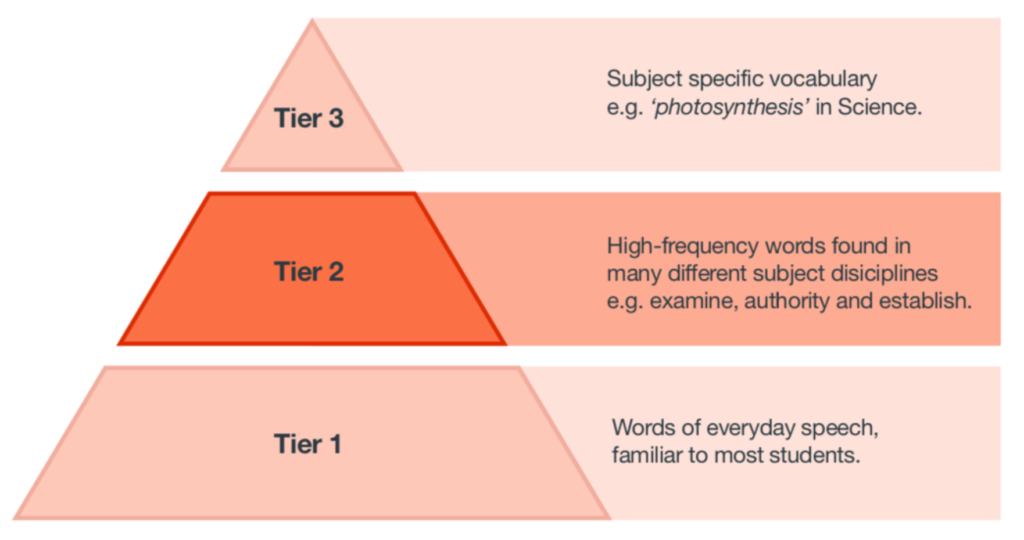
| Day | Week 1 Activity | Week 2 Activity |
|---|---|---|
| Monday | Teach 3 new words | Teach 4 new words |
| Tuesday | ||
| Wednesday | Revisit Monday's words | Revisit Monday's words |
| Thursday | ||
| Friday | Review all target words |
We introduce 3 or 4 words each week and these words are displayed in the classroom, revisited during at least one lesson and used as often as possible to help consolidate and embed new learning.
Comprehension is developed at this early stage of reading through a focus on key areas of decoding, retrieval, inference, summarising and predicting and we have our own superhero characters that have been devised to help promote these skills. Strategies are taught for practising these skills which will support children with deeper comprehension and understanding of text as they move up through school.
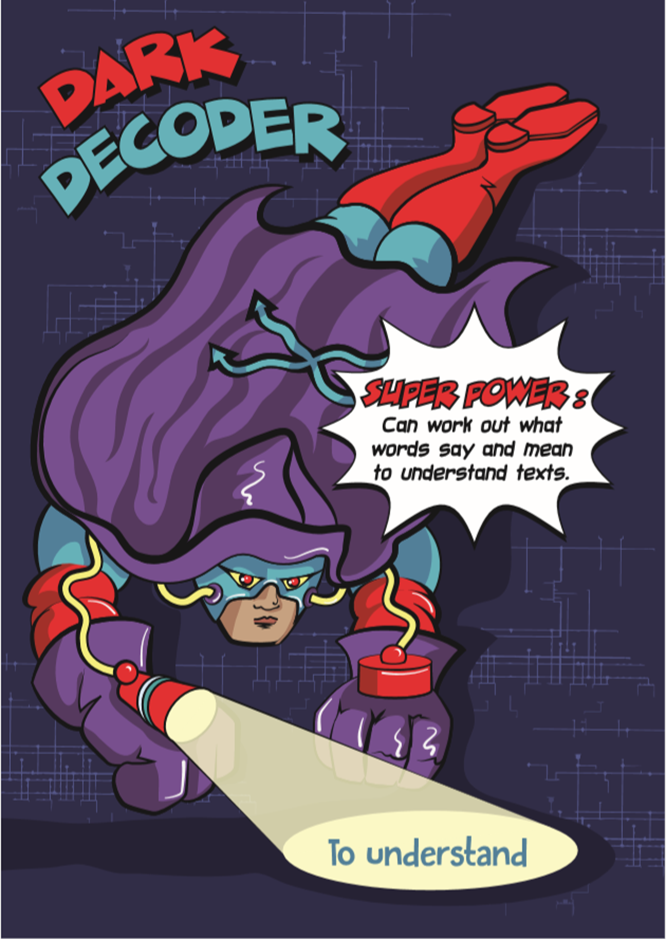

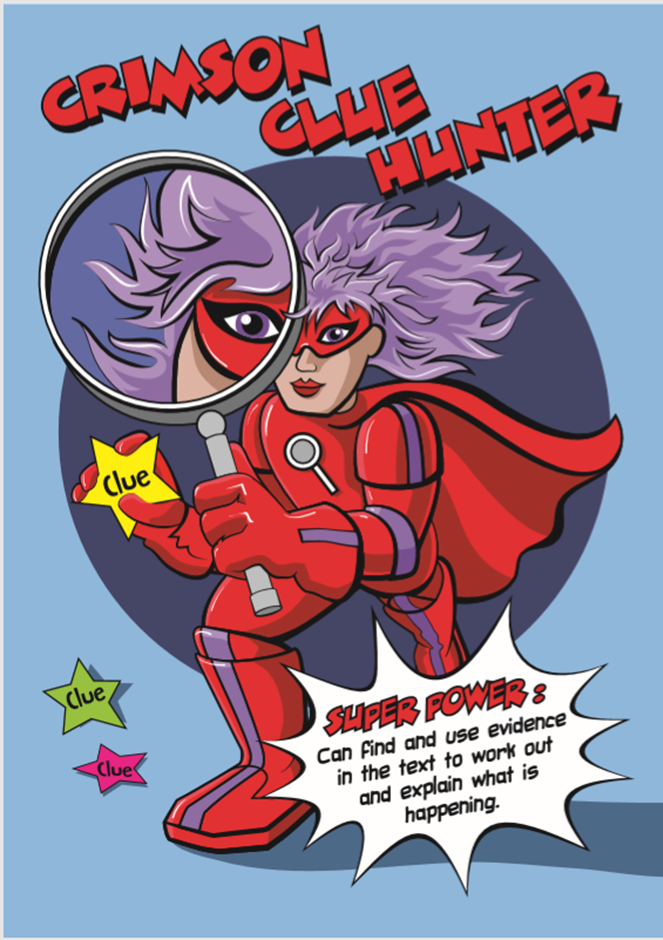

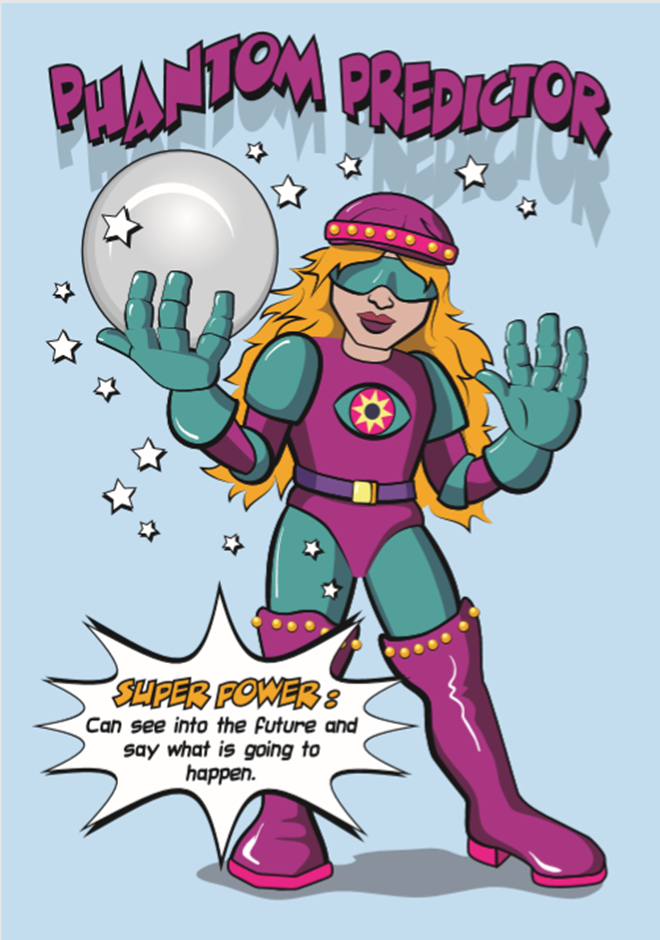

KS2
In years 3 to 6 most children take part in whole class reading sessions. Across each year group, these sessions cover a wide range of fiction, non-fiction and poetry from carefully selected whole texts and some shorter extracts to encourage pupils to think deeply and discuss a range of rich and challenging literature. They follow a general sequence from initial decoding and reading towards deeper comprehension of texts.
Whole class reading sessions focus initially on the key areas of comprehension as listed above, and children are also introduced to the aspects of comparison within and across texts, structure and organisation of texts, and authorial intent. As these skills and understood, practised and mastered, a greater emphasis is placed on wider comprehension, creating a mental image of a specific text so that meaning is understood.
Fluency
Reading lessons feature a combination of teachers reading aloud and pupils following through echo, choral, paired and independent reading.
When needed, a half-term focus on fluency is taught as a bridge to comprehension, using a different age-appropriate text each week to help pupils develop expression, emphasis, phrasing, volume and pace. Our bespoke fluency project develops pupils’ ability to listen to a peer read and give specific feedback on each aspect with advice on how this area can be improved.
Vocabulary
High frequency, tier 2 words useful in many contexts have been selected from the class novel and these words are taught through direct instruction following the principles covered in a range of publications based on research-informed practice. These words are displayed on Word Walls in every classroom and referred to as often as possible to help children to commit them to long-term memory.
Impact
Children working through either of the RWI phonics programmes in KS1 and KS2 are assessed at regular 6-week intervals using the resources provided by RWI. Progress is tracked and monitored and any children falling behind are given extra support.
Standardised comprehension tests are used at least twice during the year to inform teachers of current attainment and progress. Where needed, extra assessments are undertaken using the York Assessment of Reading Comprehension (YARC) resources which give a standardised measure of reading accuracy, fluency and comprehension.
Reading for Pleasure
 Intent
Intent
At Watercliffe Meadow, we want all of our pupils to develop a love of reading with an intrinsic motivation and desire to read for pleasure and knowledge.
Implementation
Reading for Pleasure has always been a key feature of our school improvement plan and was further developed in 2020 when we participated in a project with the Open University and UK Literacy Association. Our focus for that year was on 3 key areas:
- teacher knowledge of children’s literature
- pedagogy: reading aloud
- pedagogy: book talk
Each year, we choose one area of teacher knowledge and one area of pedagogy as a key focus and staff have received CPD on developing their RfP pedagogy from one of our English leads. Over the year, we run a wide range of reading events and activities to maintain reading for pleasure as a high priority in everything that we do. Some of these include the following:
- Teachers reading aloud to pupils daily.
- Creating engaging and social reading environments in classrooms and the school library.
- Providing opportunities for independent reading.
- Time to talk about books and reading.
- Library time for each year group.
- Regular cosy reads with other members of staff.
- Author visits and correspondence.
- Participation in the Sheffield Children’s Book Awards.
- Books for all children for Christmas.
- Video recordings of book recommendations to share across school.
- Reading buddies -Y2 and Y6.
- Online virtual bookshelves - video recordings of staff reading stories aloud.
- Quality reading resources regularly updated.
- Reading badges for children achieving 40 reads at home each term.
Impact
We monitor the levels of engagement with reading for pleasure in many ways, especially for an identified focus group of children in each class This may be in the form of pupil surveys, informal observations, number of reads completed at home, ability and willingness to participate in discussions about books, or by a child’s ability to express preferences or opinions on books read or provided in the classroom.
Spoken Language
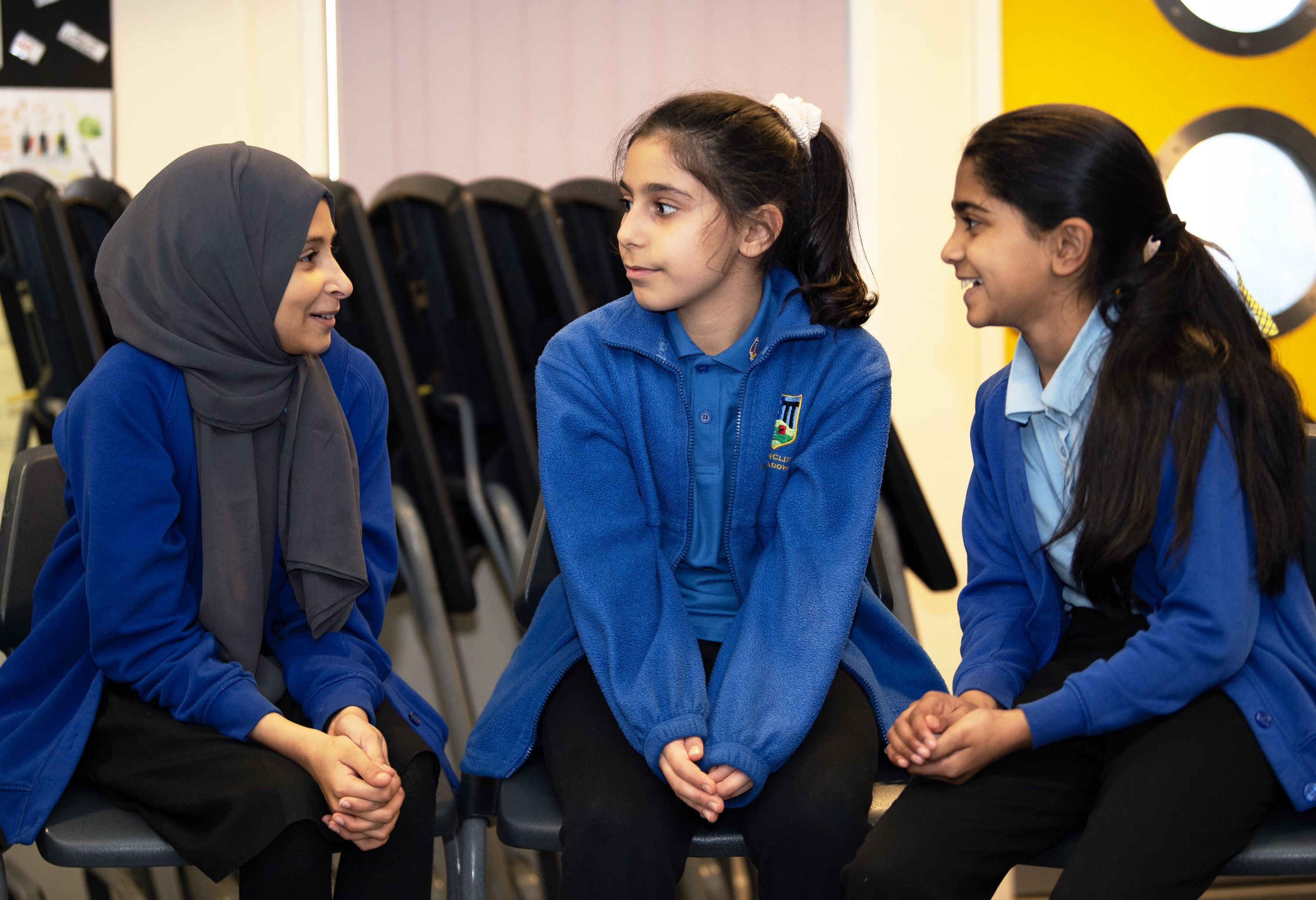
A focus on spoken language runs throughout our curriculum and opportunities for a range of activities are planned and mapped out across both the English and the wider curriculum through all year groups.
Supporting English at Home
Children on the RWI scheme take home their phonetically decodable phonics books and a book bag book which is also at this level. They also have a ‘book to share’ which they can take home for parents to read and talk to them about.
All children from Y3 to Y6 have their own learning journal where children can record the reading they have done with parents at home. The journal also contains the sounds covered in our phonics scheme, the spelling lists for KS1 and KS2 and some strategies for learning spellings at home. Words for the regular spelling tests, and the results of these also go into journals. Our reading superheroes help parents to see the different areas of reading comprehension that we focus on and there are some tips for reading to children at home. Key punctuation and grammar definitions and examples are also provided.
Visiting our year group blogs is another way to receive communication about what is happening in curriculum subjects and how parents can help their children. Newsletters are posted on the blog, at least once a term, with signposting to additional things to support children at home. Teachers record themselves reading stories at different points over the year and links to these video libraries are posted on class blogs and the school Facebook page for parents and children to enjoy together.


